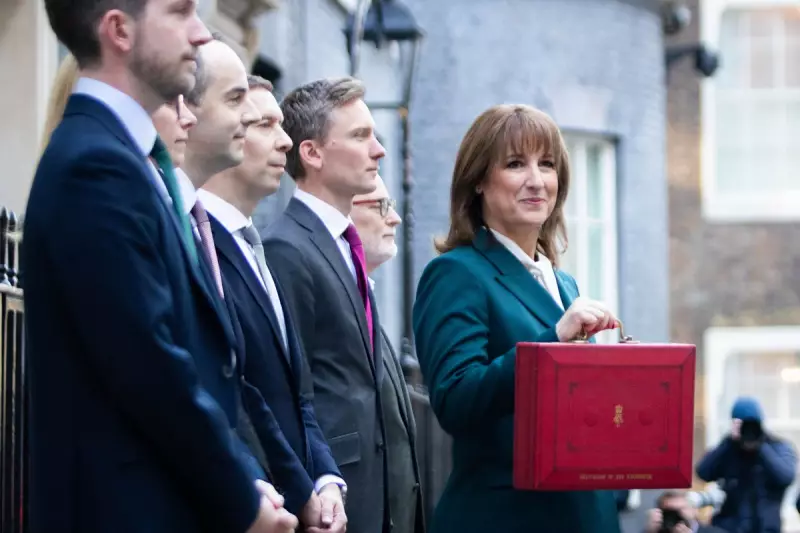
Financial Markets Give Guarded Welcome to New Budget
Financial markets offered a cautious but positive response on Wednesday as Chancellor Rachel Reeves unveiled her Budget plans, which included significant tax increases aimed at strengthening the UK's fiscal position. The FTSE 100 index rose 82.05 points, closing at 9,691.58, representing a 0.9% gain, while the pound strengthened against the dollar and gilt yields fell.
Key Budget Measures and Economic Forecasts
The centrepiece of the Chancellor's announcement was a £26 billion tax increase designed to create additional fiscal headroom against potential economic shocks. The most substantial revenue measure involves freezing income tax thresholds for an extra three years, which is projected to raise £12.7 billion by fiscal 2030-2031.
Ms Reeves acknowledged that the threshold freeze would impact "working people" but emphasised she was "asking everyone to make a contribution." Other significant measures announced include:
- Changes to salary-sacrificed pension contributions
- Increased tax rates on dividends, property and savings income
- A new mileage-based charge for electric and plug-in hybrid vehicles
- Reforms to gambling taxes
- A high-value council tax surcharge on properties worth over £2 million
- Further crackdowns on tax avoidance
The Office for Budget Responsibility provided revised growth forecasts, upgrading its 2025 GDP growth prediction from 1% to 1.5%. However, it downgraded subsequent years' forecasts, with 2026 growth now expected at 1.4% down from 1.9%.
Market Reaction and Analyst Commentary
The Budget received mixed reviews from financial analysts. Modupe Adegbembo of Jefferies described the plans as "robust" at first glance but noted that "credibility hinges on execution." She highlighted concerns about many measures being "heavily back-loaded," with the deficit higher in the near-term and only narrowing in later years.
Kallum Pickering of Peel Hunt characterised the Budget as "tolerable" for financial markets, with no major shifts in rates, Bank of England pricing, or inflation expectations. He cautioned that "the danger comes with the back-loaded nature of the Budget" and that delivering on commitments would be crucial.
Andrew Wishart of Berenberg observed that the Chancellor benefited from "a far better set of fiscal forecasts than anyone expected," which spared her from making even more difficult decisions.
The pound strengthened to 1.3232 US dollars at the London close, up from 1.3183 dollars the previous day, while the yield on the UK 10-year gilt fell to 4.43% from 4.49%.
Sector-Specific Impacts
Banking stocks performed strongly as the sector avoided additional tax measures, with Lloyds Banking Group rising 3.4%, Barclays gaining 3.2%, and NatWest advancing 2.3%.
However, gambling companies faced pressure from duty changes, with William Hill owner Evoke sliding 18%. Oil and gas companies also declined as the government confirmed the windfall tax would remain until March 2030, sending Serica Energy down 4.1% and Harbour Energy sliding 4.7%.
The government also announced measures to reduce energy bills by an average of £2.3 billion over the next three years by cutting some green levies that support renewable electricity.
Tom Stevenson of Fidelity International suggested Ms Reeves could "feel relieved" about the market reaction, noting that "the steadiness of the market response suggests that investors were reassured by the overall fiscal approach."





